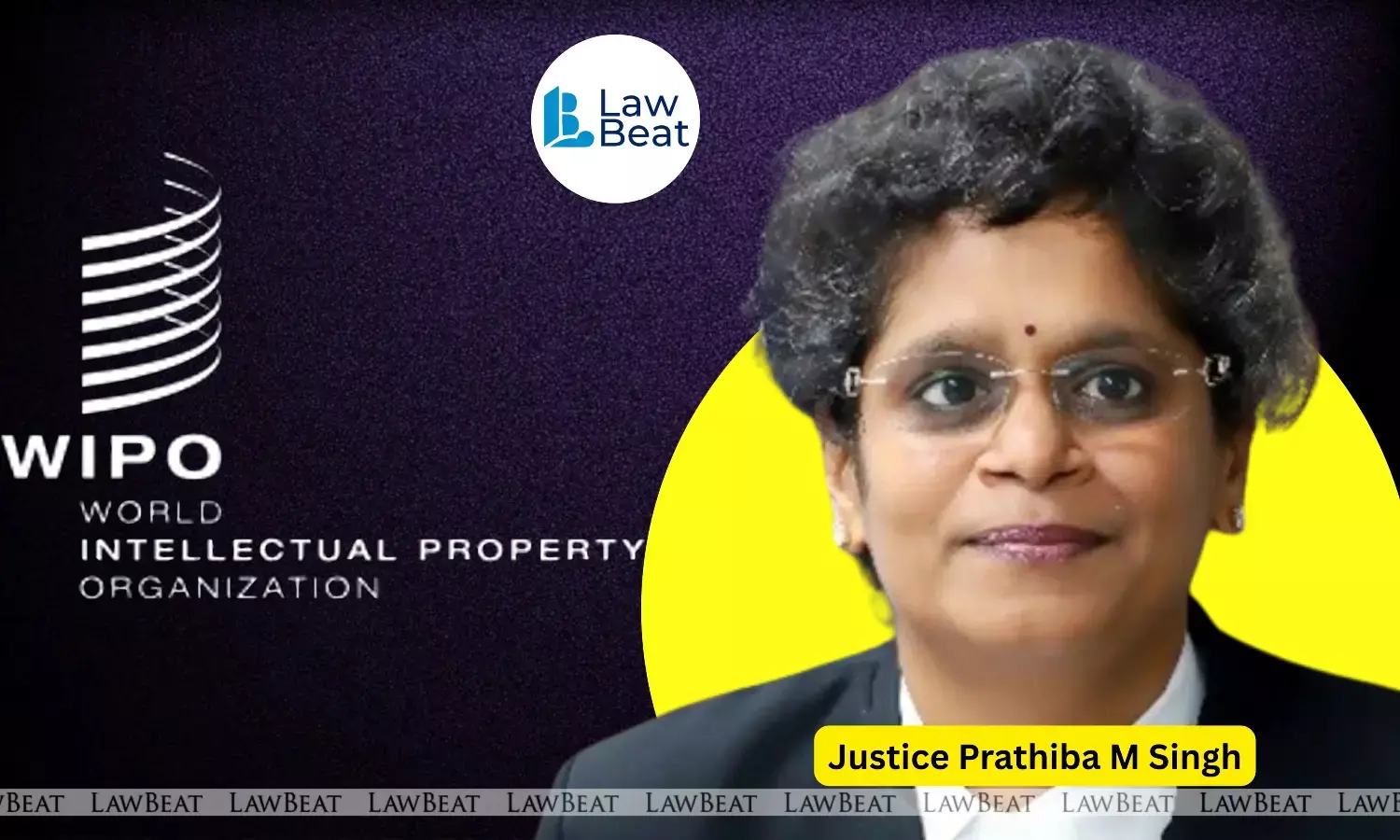Justice Prathiba M. Singh Appointed Chair of WIPO Advisory Board of Judges for 2025-2027

WIPO Appoints Justice Prathiba M. Singh as Chair of Global IP Judges’ Board
Justice Prathiba M. Singh of the Delhi High Court has been appointed Chair of the World Intellectual Property Organization (WIPO) Advisory Board of Judges for the 2025–2027 term, marking a significant milestone for India’s representation in global intellectual property governance.
The announcement was made by WIPO in Geneva, identifying Justice Singh as the head of the ten member board that advises the organization on its judicial engagement and capacity-building initiatives.
The Permanent Mission of India to the United Nations at Geneva congratulated her appointment in a post on X, calling it “a proud moment for India,” and noted that she would lead a group of international judges providing guidance and direction to WIPO’s work with judiciaries around the world in the field of intellectual property.
The WIPO Advisory Board of Judges plays a key role in shaping the organization’s engagement with national and regional judiciaries by facilitating transnational judicial dialogue, developing best practices, and strengthening judicial understanding of intellectual property law.
Members are drawn from diverse jurisdictions and serve in their personal capacities, contributing insights from their domestic judicial experience. For the 2025–2027 term, alongside Justice Singh, the Board includes Judge Luis Antonio Camargo Vergara from Panama, Judge Du Weike from China, Judge Zhanar Mukhamedkaliyevna Duisenova from Kazakhstan, Judge Mohammad ElZend from Egypt, Judge Jean-Christophe Gayet from France, Justice Michael Manson from Canada, Judge Mustapher Mohamed Siyani from Tanzania, Judge Savvas S. Papasavvas from Luxembourg, and Judge Woo Sungyop from the Republic of Korea.
The Board operates under the WIPO Judicial Institute, which serves as a global centre for judicial training and cooperation in intellectual property matters.
Justice Prathiba M. Singh’s appointment comes at a time when intellectual property issues have become increasingly interconnected with technology, trade, and innovation policy worldwide. Her experience in both litigation and judicial administration is expected to bring valuable perspective to the Advisory Board’s work.
Before her elevation to the bench, Justice Singh had a distinguished career as an intellectual property lawyer, having appeared before the Supreme Court of India, the Delhi High Court, and various patent and copyright tribunals. She was appointed as a permanent judge of the Delhi High Court in 2017 and has since authored several notable judgments in the areas of patent enforcement, copyright protection, and trademark disputes.
She also chaired the first Intellectual Property Division constituted at the Delhi High Court in 2021–22, a landmark institutional reform aimed at streamlining IP adjudication in India.
An alumna of the University Law College, Bengaluru, and the University of Cambridge, Justice Singh has been widely recognised for her contributions to the development of intellectual property law in India.
A scholarship was instituted in her name at Cambridge to encourage excellence in the study of law, and she has been featured among the 50 most influential figures globally in the field of intellectual property for two consecutive years, 2021 and 2022.
Her scholarship and judgments have often been cited for balancing innovation incentives with public interest, particularly in the context of pharmaceutical patents, design protection, and digital content rights.
As Chair of the WIPO Advisory Board of Judges, Justice Singh will guide discussions on global judicial cooperation in intellectual property, oversee strategic inputs on judicial training programmes, and assist WIPO in shaping frameworks that enhance the judiciary’s capacity to address emerging IP challenges such as artificial intelligence, data rights, and cross-border enforcement.
Her leadership is likely to strengthen collaboration among judicial systems and reinforce the exchange of jurisprudential insights between developed and developing economies.
For India, the appointment underscores the growing recognition of its judiciary’s expertise in complex areas of intellectual property and innovation law. The Indian Mission to the UN noted that Justice Singh’s appointment symbolizes India’s active participation in shaping global governance on intellectual property. It also reflects the country’s broader commitment to contributing to multilateral frameworks that encourage equitable access to innovation and fair adjudication of IP disputes.
WIPO, in its official release, stated that the new Board would help strengthen dialogue among judges worldwide and serve as a platform to share judicial experiences on emerging trends and best practices in IP adjudication.
Justice Singh’s role as Chair places India at the centre of a critical conversation on how courts across jurisdictions can adapt to the rapidly changing intellectual property landscape. With the increasing role of digital technology, the proliferation of AI-generated works, and the challenges of harmonising IP standards globally, the Advisory Board’s guidance will be instrumental in building judicial capacities and fostering a shared understanding of international IP norms.
